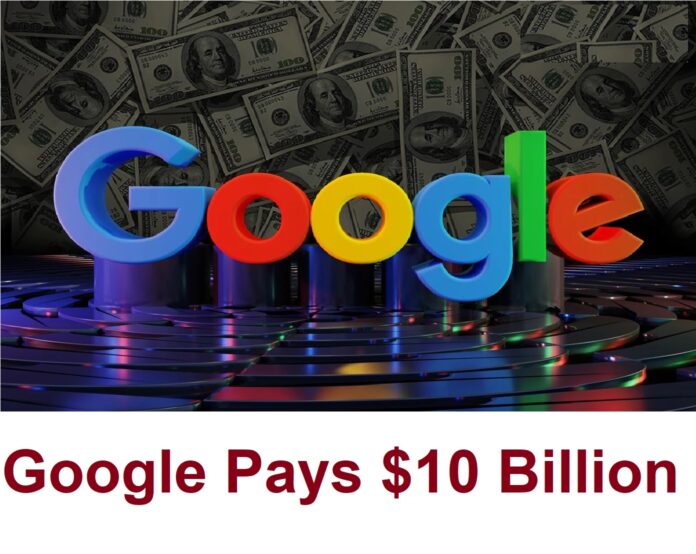The claim came on the first day of a major trial that is the biggest antitrust case in the United States in more than two decades. Google vehemently opposed the US complaint arguing that its search engine was successful because of its quality.
Washington: The US government on Tuesday accused Google of paying over $10 billion a year to Apple and other corporations in order to protect its monopoly over internet search.
The claim came on the first day of a major trial that is the biggest antitrust case in the United States in more than two decades.
“This case is about the future of the internet and whether Google will ever face meaningful competition in search,” said Justice Department lawyer Kenneth Dintzer as the United States government began outlining its case against the Internet juggernaut.
Over 10-weeks and with dozens of witnesses summoned to the bar, Google will try to persuade Judge Amit P. Mehta that the lawsuit launched by the Department of Justice is without substance.
“Google has for decades innovated and improved its search engine, plaintiffs escape this inescapable truth,” Google’s lawyer John Schmidtlein stated before the court.
Held in a Washington courthouse, the trial is the first time US prosecutors have faced a huge computer business head-on since Microsoft was targeted more than two decades ago over the dominance of its Windows operating system.
“Even for Washington DC, I think we have the highest concentration of blue suits in any location here today,” Mehta quipped, seeing the scores of attorneys crowded into his courtroom.
The Google lawsuit centered on the government’s argument that the internet behemoth unfairly obtained its control of online search by establishing exclusive relationships with device makers, mobile carriers and other corporations that gave rivals little chance to compete.
Dintzer told Judge Mehta that Google pays roughly $10 billion per year to Apple and others to ensure its search engine default status on phones and online browsers, so burying upstarts before they have a chance to flourish.
Over the last decade, this established what the government terms a “feedback loop” in which Google’s dominance became increasingly greater because of its monopolist access to user data that rivals could never match.
“Through this feedback loop, this wheel has been revolving for more than 12 years. It always swings to Google’s benefit,” Dintzer remarked.
That supremacy has made Google parent Alphabet one of the world’s richest corporations, with search advertisements producing over 60 percent of the company’s revenue, dwarfing revenues from other operations such as YouTube or Android phones.
“We will track what Google did to protect its monopoly… It’s not about what it could have done or should have done, it’s about what they did,” Dintzer told the court.
– Court ‘cannot interfere’ –
Google vehemently opposed the US complaint arguing that its search engine was effective because of its quality and the massive expenditures made over the years.
“This court cannot intervene in the market and declare ‘Google you are not permitted to compete.’ That is anathema to US antitrust law,” Google’s Schmidtlein stated.
Schmidtlein asserted that testimony from executives at Apple and others will reveal that Google achieved the coveted default status on iPhone and browsers “on the merits.”
The largest accused victims in the lawsuit are competitor search engines that have yet to squeeze out a major market share for search or search advertisements versus Google, such Microsoft’s Bing and DuckDuckGo.
Google is the world’s go-to search engine, garnering 90 percent of the market in the United States and around the globe, much of which comes from mobile usage on iPhones and phones running on Google-owned Android.
Mehta’s verdict is due several months after the nearly three months of proceedings.
He might ignore the government’s claims or impose dramatic remedial action such as a separation of Google’s operations or a rethink of the way it functions.
Whatever the conclusion, the verdict will almost definitely be challenged by either side, potentially dragging the case on for years.
Launched in 1998, Washington’s action against Microsoft ended in a settlement in 2001 after an appeal reversed an order that the business be divided up.



